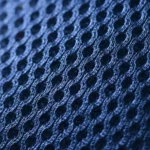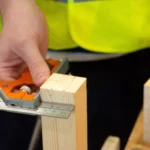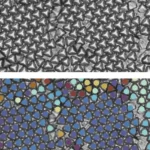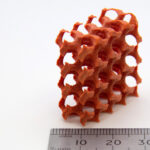A team of researchers from Loughborough University’s Wolfson School of Mechanical, Electrical and Manufacturing Engineering has used 3D printing to develop a new nanogenerator technology that could be used to create affordable ‘smart clothing’ that could be used for health monitoring. The new triboelectric nanogenerator (TENG) design can be customised using different liquids to … [Read more...] about Smart clothing a step closer thanks to nanogenerator advances
Materials
NMITE launches updated timber short courses
NMITE (the New Model Institute for Technology & Engineering) has announced that it has reconfigured of its pioneering Timber Technology Engineering Design (TED) courses into specialised, concise programmes tailored for professionals within the UK’s built environment sector. An evolution of the original 12-week part-time courses (TED1 and TED2), the initiative reflects … [Read more...] about NMITE launches updated timber short courses
Elusive 3D-printed nanoparticles could lead to new shapeshifting materials
Materials engineers at Stanford University in California have 3D-printed tens of thousands of a difficult-to-manufacture type of nanoparticle that has been long predicted to yield promising new materials that can change form in an instant. In nanomaterials, shape is destiny. That is, the geometry of the particles in the material defines the material’s physical … [Read more...] about Elusive 3D-printed nanoparticles could lead to new shapeshifting materials
New plastic coating discovery gives greater functionality to 3D printing
A team of scientists and engineers from the University of Nottingham’s School of Chemistry and Faculty of Engineering has developed a new coating for plastic particles that are used in 3D printing that significantly increases their functionality and opens up new possibilities for commercial applications. The researchers used supercriticial carbon dioxide to create an … [Read more...] about New plastic coating discovery gives greater functionality to 3D printing
Loctite makes its latest e-learning module available to engineering students
Adhesive-technologies expert Loctite has launched the latest module on its free Xplore e-learning platform, entitled Fundamentals of Bonding. As well as industry professionals, Loctite is making the module and platform available to students through partnerships with several prominent universities. According to the company, the new module is empowering the next generation of … [Read more...] about Loctite makes its latest e-learning module available to engineering students






